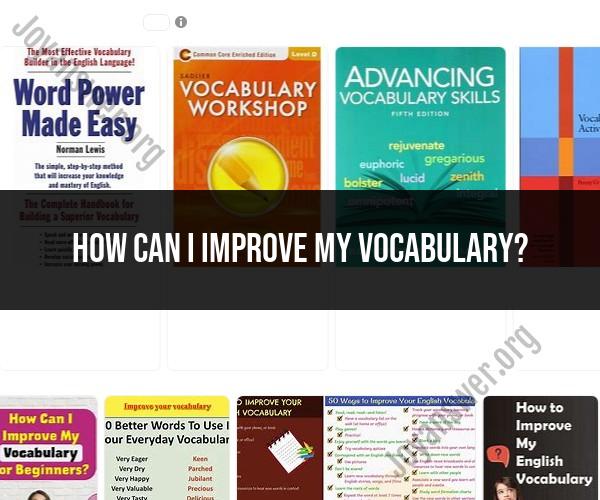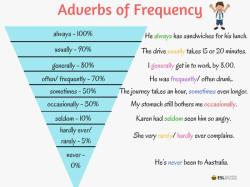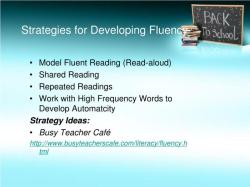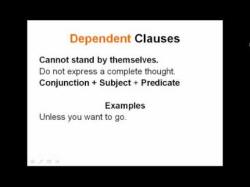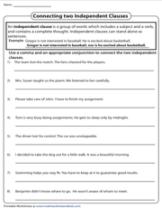How can I improve my vocabulary?
Enhancing your vocabulary is a valuable skill that can improve your communication, writing, and overall cognitive abilities. Here are some practical tips and techniques to help you expand your vocabulary effectively:
1. Read Regularly:Reading a variety of materials, including books, articles, newspapers, and blogs, exposes you to new words and contexts. Choose materials that align with your interests and challenge your vocabulary.
2. Use a Dictionary:Keep a dictionary handy or use online dictionaries to look up unfamiliar words you encounter while reading. Learn the meanings, pronunciations, and usage of these words.
3. Learn a Word a Day:Challenge yourself to learn a new word every day. You can use vocabulary-building apps, calendars, or books dedicated to daily word learning.
4. Contextual Learning:Pay attention to how words are used in sentences and paragraphs. This helps you understand their meanings in different contexts and improves your ability to use them accurately.
5. Play Word Games:Engage in word games like crossword puzzles, Scrabble, or word search. These games are both fun and effective for building your vocabulary.
6. Use Flashcards:Create flashcards with a new word on one side and its definition, synonyms, antonyms, and example sentences on the other side. Review these cards regularly to reinforce your memory.
7. Keep a Vocabulary Journal:Maintain a journal where you jot down new words you come across. Write down their definitions, usage, and any related notes. Review and revise your journal periodically.
8. Read Aloud:Reading aloud helps you practice pronunciation and reinforces the connection between words and their meanings.
9. Use Words in Context:Actively incorporate new words into your speaking and writing. The more you use a word, the more likely it is to become a permanent part of your vocabulary.
10. Listen to Complex Conversations:Listen to podcasts, debates, or talks on subjects that challenge your vocabulary. Exposure to advanced language usage helps you grasp nuanced words.
11. Study Prefixes and Suffixes:Understanding common prefixes (e.g., "un-", "re-", "pre-") and suffixes (e.g., "-able," "-tion," "-ing") can help you decipher the meanings of unfamiliar words.
12. Read Different Genres:Read a variety of genres, from literature to science, history, and art. Each genre has its own specialized vocabulary.
13. Engage in Conversations:Hold conversations with people who have diverse backgrounds and interests. Engaging in discussions exposes you to different words and phrases.
14. Expand Your Cultural Horizons:Explore literature and media from different cultures and languages. This exposes you to new words that might not have direct equivalents in your native language.
15. Review and Repeat:Regularly revisit words you've learned to reinforce your memory. Repetition helps solidify your vocabulary.
Remember that building a strong vocabulary is a gradual process. Be patient with yourself, stay consistent, and celebrate your progress as you incorporate new words into your everyday communication.
